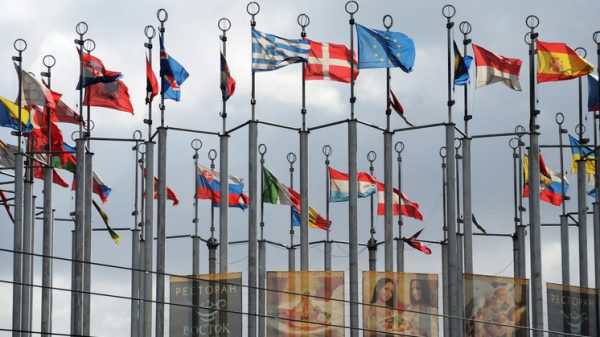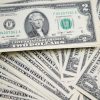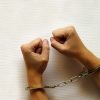
Hong Kong legal scholar and democracy activist Benny Tai Yiu-ting speaks to the press as he prepares to report to the Ma On Shan Police Station in Hong Kong
Credit: JEROME FAVRE/EPA-EFE/Shutterstock/Shutterstock
Dozens of Hong Kong dissidents were charged with subversion on Sunday in the largest use yet of Beijing’s sweeping new national security law, as authorities seek to cripple the finance hub’s democracy movement.
Police arrested 55 of the city’s best-known pro-democracy campaigners in a series of dawn raids last month.
On Sunday, 47 were charged with one count each of "conspiracy to commit subversion" — one of the new national security crimes — with police saying the group would appear in court on Monday morning.
Democracy supporters described the move as a body blow.
"Every prominent voice of the pro-democracy movement in Hong Kong now is either jailed, in exile, or charged for subversion of state power," activist Sophie Mak wrote on Twitter.
The European Union’s office in Hong Kong said the charges were of "great concern".
"The nature of these charges makes clear that legitimate political pluralism will no longer be tolerated in Hong Kong," the office added.
Beijing is battling to stamp out dissent in semi-autonomous Hong Kong after swathes of the population hit the streets in 2019 in huge and sometimes violent democracy protests.
The broadly worded security law, imposed on the city last June, criminalises any act deemed to be subversion, secession, terrorism or collusion with foreign forces.
Those charged are routinely denied bail until trial and face up to life in prison if convicted.
The activists charged on Sunday represent a broad cross-section of Hong Kong’s opposition, from veteran former pro-democracy lawmakers to academics, lawyers, social workers and a host of youth activists.
Joshua Wong, one of the city’s most recognisable pro-democracy figures, was among those charged, visited by police inside prison where he is currently serving a sentence for organising protests in 2019.
John Clancey, an American lawyer and long-time Hong Kong resident who was with the initial group arrested, was one of the few not charged on Sunday.

Pro-democracy activists Helena Wong Pik-wan and Jimmy Sham arrive to report to a police station over national security law charges
Credit: JOYCE ZHOU/REUTERS
Many struck a defiant tone as they prepared to report to police on Sunday to hear the charges.
"Democracy is never a gift from heaven. It must be earned by many with strong will," Jimmy Sham, a key organiser of 2019’s huge protests, told reporters outside a police station.
"We can tell the whole world, under the most painful system, Hong Kongers are the light of the city. We will remain strong and fight for what we want," he added.
Former student leader Lester Shum said: "We have long decided not to bow our heads to totalitarian rule. I hope Hong Kong people can carry on with this decision."
The alleged offence of those arrested for subversion was to organise an unofficial primary last summer to choose candidates for the city’s partially elected legislature, in hopes that the pro-democracy bloc might take a majority for the first time.
Many of those candidates were ultimately disqualified from standing, and authorities scrapped the election because of the coronavirus.
But Chinese and Hong Kong officials viewed the primary as an attempt to "overthrow" and "paralyse" the city’s government and therefore a threat to national security.
Critics say that declaration has effectively made opposition politics in Hong Kong all but illegal.
Clifford Stott, a British academic who was hired by Hong Kong’s government to sit on a short-lived advisory panel to the city’s police watchdog after the protests, gave a stark assessment of Sunday’s charges.
"The day participation in the democratic process became a crime," he wrote on Twitter.
Hong Kong has never been a democracy — something that has fuelled protests and resentment towards Beijing.
But until recently, the city had a measure of choice that allowed a small and vocal opposition to flourish at certain local elections.
After 2019’s protests, China has sought to ensure only "staunch patriots" be allowed to run Hong Kong, with some lawmakers and candidates increasingly disqualified for their views.
On Tuesday authorities also unveiled a new law that will vet the political views of all public office holders.
Western nations have accused Beijing of using its crackdown to shred the freedoms that were promised under the "One Country, Two Systems" setup when the former British colony was returned to China.
After last month’s arrests the UN’s rights watchdog said the sweep confirmed fears the security law was "being used to detain individuals for exercising legitimate rights to participate in political and public life".
Beijing, which promised the security law would target only an "extreme minority", said the legislation was needed to restore stability.
























































Свежие комментарии